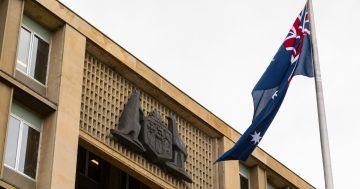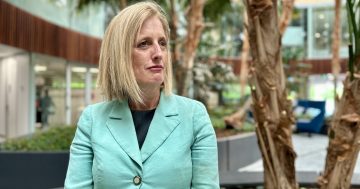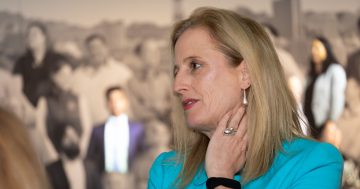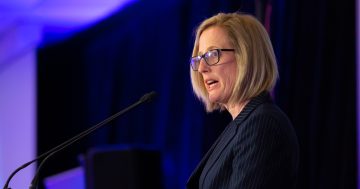
The government is seeking to increase diversity in the upper echelons of the APS. Photo: Yuri Arcurs.
The Australian Public Service will more closely represent the multicultural makeup of Australian society by mandating a diverse employment strategy that includes the highest levels of the sector.
The Federal Government has today (30 April) released its plan to increase cultural diversity in the APS’s senior leadership ranks. The target is to have almost one-quarter of the Senior Executive Service (SES) be from a culturally diverse background.
The government’s Culturally and Linguistically Diverse (CALD) Employment Strategy and Action Plan, published by the Australian Public Service Commission, sets out clear standards and expectations that the APS needs to better reflect the community it serves.
Public Service Minister Katy Gallagher said that while the APS broadly reflects Australia’s cultural and racial diversity, representation drops sharply at senior levels.
The Minister said that half of the Australian population is either born overseas or has a parent who was born overseas, so it is reasonable to expect that the APS senior levels of management should be more representative.
“As part of this strategy, we’re setting a target to increase CALD representation in the SES to 24 per cent and achieve 15 per cent representation within four years,” Senator Gallagher said.
“We want to harness the skills and experience of CALD employees and remove the barriers they face for career progression.
“Australia is a multicultural nation, and the APS needs to reflect and look like the people it serves.”
To mark progress towards 24 per cent, the plan outlines three interim benchmarks of 13 per cent in the second year, 15 per cent in the fourth year and 17 per cent by the end of the sixth year.
However, it only states that by the end of 2030, all agencies will have a “plan towards 24 per cent benchmark”.
These benchmarks are based on one in four future SES appointments identifying as CALD, representing population share and, according to the government, they will ensure a “fixed trajectory” towards 24 percent CALD SES representation.
Twenty lead agencies will report progress towards the population benchmark, using their internal HR data as at June 2030 as the starting point.
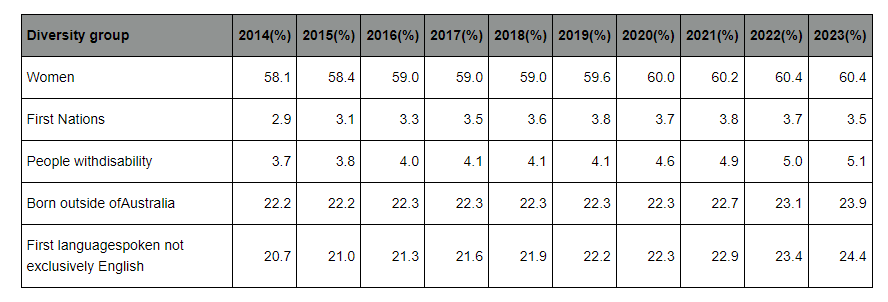
Proportion of all APS employees by diversity group at 30 June (2014 to 2023). Image: APSC (State of the Service).
The overall strategy sets out five headline actions, which include introducing an APS statement of leadership to support cultural diversity; building an APS-wide interagency CALD champion network; embedding cultural capability training and sponsorship of CALD employees; modernising the APS recruitment and promotion processes to apply a rigorous understanding of merit; and the 24 per cent SES benchmark.
Minister for Multicultural Affairs Andrew Giles said the strategy recognises the importance of multicultural diversity.
“Our multicultural diversity is our nation’s greatest strength,” he said.
“Our public service is at its best when it reflects the diversity of our society at all levels.
“The government is ensuring that the APS is a workplace for all Australians, no matter your faith or cultural background.”
The APSC undertook consultation and analytic work to devise the strategy and action plan.
CALD staff are 25 per cent of the APS as a whole. Its current employment data shows that CALD employees are most represented in technical or specialist job families.
Specifically, CALD employees account for:
- 39 per cent of ICT and digital solutions staff
- 34 per cent of compliance and regulation staff
- 33 per cent of accounting and finance staff
- 20 per cent of policy staff
- 17 per cent of the communications and marketing, and
- 11 per cent of current senior executives.
Assistant Minister for the Public Service Patrick Gorman described the strategy as a “call to action” for all APS employees to be inclusive leaders who embrace the cultural diversity of the service.
“The APS is a core part of the community. Public servants are our neighbours, friends and family. Therefore, the service must reflect the full diversity of the Australian community,” he said.
“Being a model employer means ensuring an environment that enables and empowers all employees to serve the Australian public.
“CALD employees are already a significant part of the APS workforce. This strategy will give the APS the benefits of rich and diverse perspectives, knowledge, talent and capabilities for the wider benefit.
“This Strategy will drive the changes needed to address any roadblocks to an inclusive, equitable and diverse workplace in the APS.”












